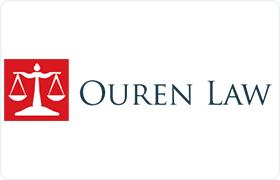Yakima Criminal Lawyer, Washington
Sponsored Law Firm
-
 x
x

Click For More Info:
-
Ouren Law
4101 South Union Street Kennewick, WA 99337» view mapCriminal Defense Dedicated. Straightforward. Tough.
With more than a decade of experience, Attorney Ouren has helped many clients achieve successful results in their family law and criminal law matters.
800-971-6601
James Doyle Kirkham
✓ VERIFIEDCriminal, Traffic, Domestic Violence & Neglect, Estate
James Doyle Kirkham Jr. earned a B.A. in Political Science and a B.S. in Public Policy from Central Washington University, graduating in the year 2000... (more)
Tony L Swartz
✓ VERIFIEDCriminal, Business, Landlord-Tenant, Wills & Probate, Power of Attorney
Tony Swartz is an Ellensburg, WA attorney who primarily focuses on criminal defense and traffic cases. In his spare time, he plays trumpet in Ellensbu... (more)
William A Schuler
Accident & Injury, Criminal, Estate, Traffic
Status: In Good Standing Licensed: 30 Years
Kip Bates Kendrick
Wills & Probate, Estate, White Collar Crime, Criminal
Status: In Good Standing Licensed: 50 Years
Brooke Rosborough Barnes
Traffic, Family Law, Child Custody, Criminal
Status: In Good Standing Licensed: 12 Years
 Kimberly Ouren Kennewick, WA
Kimberly Ouren Kennewick, WA Practice AreasExpertise
Practice AreasExpertise


